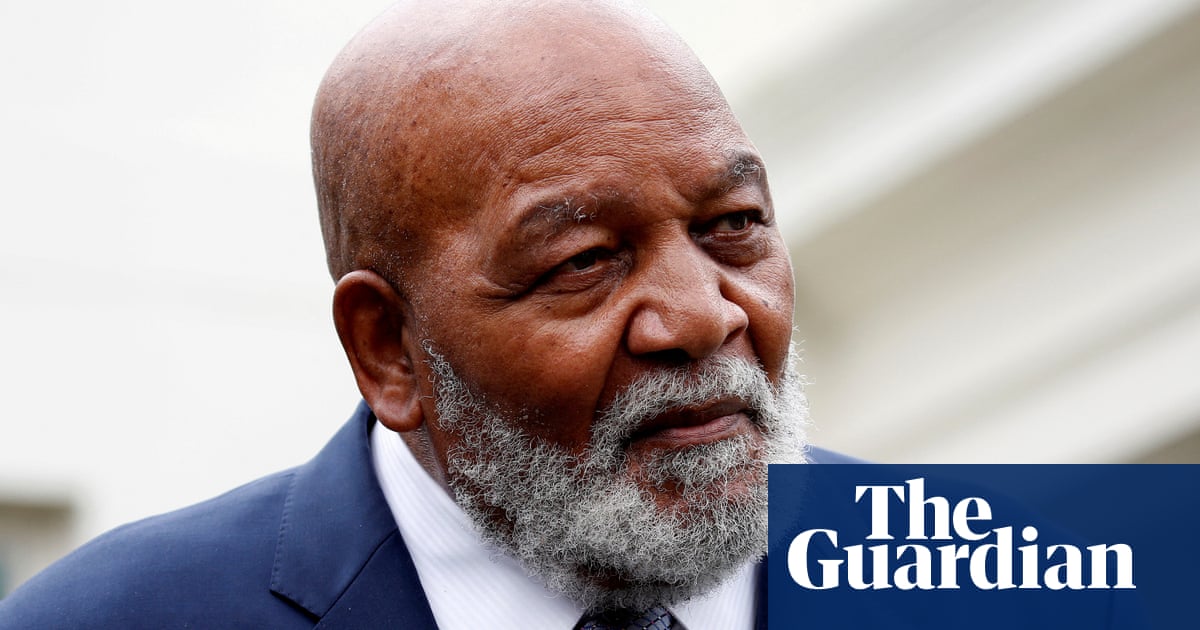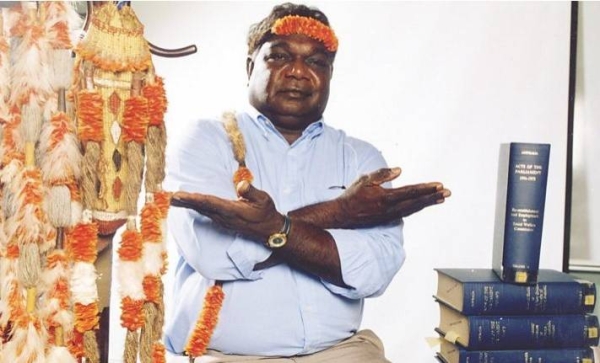
Denis Goldberg, the veteran South African anti-apartheid activist who was a close associate of Nelson Mandela and who spent 22 years in prison after being jailed on treason charges in 1964, has died aged 87.
A statement from Goldberg’s family and the Denis Goldberg Legacy Foundation Trust said: “Denis Goldberg passed away just before midnight on Wednesday. His was a life well lived in the struggle for freedom in South Africa. We will miss him.”
Born in 1933 in Cape Town into a leftwing Jewish family who had emigrated from the UK, Goldberg faced antisemitic attacks at school, which contributed to a growing political awareness.
“I understood that what was happening in South Africa with its racism was like the racism in Nazi Germany in Europe that we were supposed to be fighting against,” he later said.
Goldberg studied civil engineering and joined the banned Communist party in 1957.
In 1960 he was jailed for four months after his arrest during protests following the shooting dead of 69 demonstrators by police in the Sharpeville massacre. On his release, he argued for the escalation of the fight against apartheid, and he became an official in the newly formed military wing of the African National Congress.
Goldberg was arrested again in 1963 when the police raided a meeting of leading activists at Liliesleaf Farm, in the Rivonia suburb in the north of Johannesburg, and he was charged with organising a campaign of “violent revolution”. The same raid led to Mandela’s conviction and life sentence.
Mandela later recounted Goldberg’s humour during the court proceedings, known as the Rivonia trial. “There was a good deal of gallows humour among us. Denis Goldberg, the youngest of the accused, had an irrepressible sense of humour and often had us laughing when we should not have been,” the Nobel prize laureate wrote.
Having faced a potential death sentence, Goldberg responded to his life sentence by shouting to his wife and mother in the gallery: “Life! To live!”
He was held in virtual isolation in the whites-only Pretoria Central prison for more than two decades, and allowed only very rare and short meetings with his family.
Released in 1985, Goldberg travelled to London where he raised support for the struggle against apartheid. He returned to South Africa in 2002.
In recent years Goldberg worked to raise funds for the House of Hope, a space to support young people in impoverished communities around the suburb of Hout Bay, in Cape Town.
He had lung cancer and diabetes, and died peacefully at his home in Hout Bay.
“A giant has fallen. A truly great South African,” said Eusebius McKaiser, a radio host and journalist.
Ronnie Kasrils, a veteran anti-apartheid activist and politician, said Goldberg was an “outstanding, remarkable South African and human being”.
Sello Hatang, the chief executive of the Nelson Mandela Foundation, said South Africa had lost “another true patriot … [whose] life was dedicated to the struggle against apartheid and the building of democracy”.
Receiving the Freedom of the City of London in 2016, Goldberg said there was “a long way to go” on race relations in South Africa. “The racial segregation was burnt into the minds of every South African,” he said.












